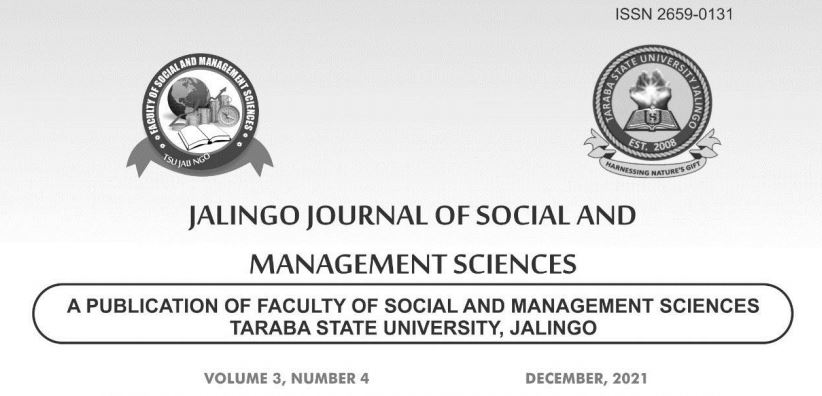Effect of Foreign Exchange Fluctuations on the Economic Growth of Nigeria
Keywords:
Autoregressive Distributed Lag (ARDL), Economic growth, Exchange rate, Inflation rate, Nigeria, Trade opennessAbstract
Stable exchange rate is one of the various objectives meant to be attained by the government of a country. Therefore, this study looks at the effect exchange rate fluctuation has on Nigeria’s economic growth. The study employs Autoregressive Distributed Lag (ARDL) model on selected variables from 1981–2020. Using Augmented Dickey Fuller (ADF) test, stationarity test was conducted and the result revealed that growth rate (GR), inflation rate (INFR) and gross capital formation (GCF) is stationary at levels while exchange rate (EXR) and trade openness (TO) are stationary at first difference. Results from ARDL model show that in the short run, EXR and INFR are both statistically significant and have negative effects on the economy, while TO and GCF are both statistically insignificant only GCF has a positive effect on the economy. In the long run EXR and GCF are statistically insignificant and both have a negative effect on the economy, while INFR is statistically significant and has a negative effect on the economy. TO is statistically insignificant and has a positive effect on the economy. The study, therefore, recommends that policy makers should ensure diversification of the economy in order to reduce the focus on oil sector and encourage domestic production which will aid export and make us less import dependent resulting in a more stable exchange rate.

Downloads
Published
Issue
Section
License
Copyright (c) 2023 JALINGO JOURNAL OF SOCIAL AND MANAGEMENT SCIENCES

This work is licensed under a Creative Commons Attribution-NonCommercial 4.0 International License.
